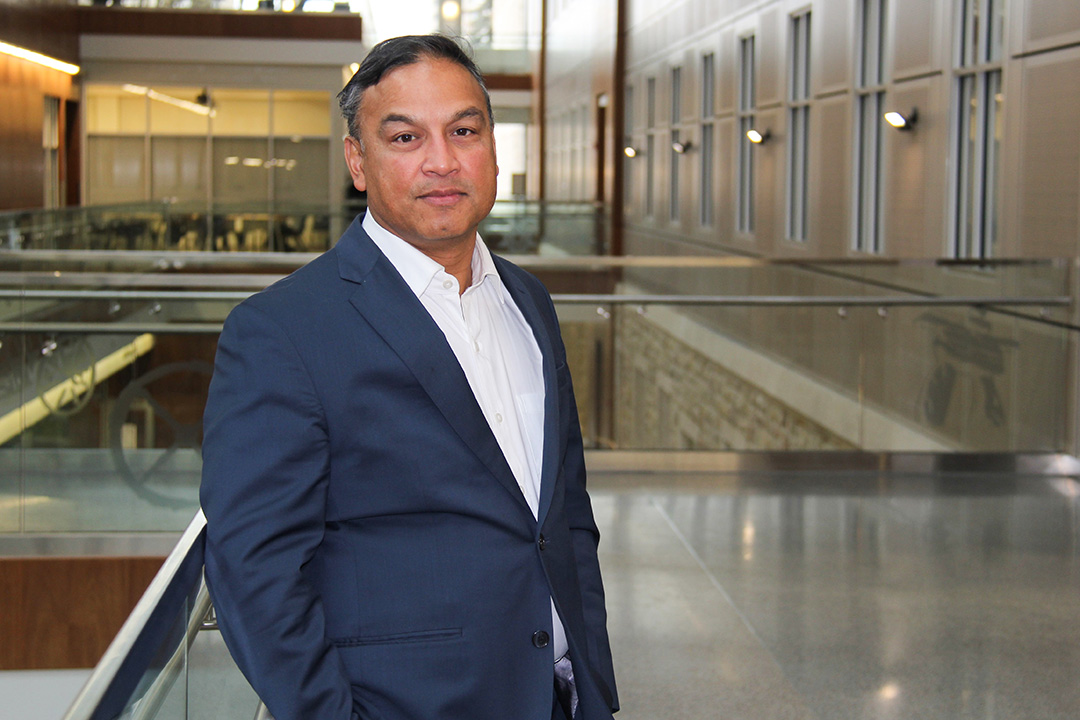
Sask. researchers to assess the impact of COVID-19 on kids and families with funding from SHRF and MHRC
An increasing number of studies are examining the impact of COVID-19 on the mental health of adult Canadians, but little is being done to assess its impact on children and youth, even though children and youth are reporting greater anxiety levels, and the impact on their mental health is manifesting in different behaviours.
By Saskatchewan Health Research FoundationOriginally published by Saskatchewan Health Research Foundation
A new study was awarded $50,000, co-funded by Mental Health Research Canada (MHRC) and Saskatchewan Health Research Foundation (SHRF) - as part of MHRC's multi-province COVID-19 research initiative - to fill this knowledge gap.
The study, co-led by Dr. Nazeem Muhajarine, professor of Community Health and Epidemiology at the University of Saskatchewan (USask), and Dr. Tamara Hinz, child and adolescent psychiatrist with Saskatchewan Health Authority, will measure the frequency and severity of mental health issues among Saskatchewan’s children and youth (ages 5 to 19) during the pandemic, as well as their need, use and satisfaction with mental health services. The two lead investigators and their team will collect data from up to 800 diverse families by conducting online and telephone surveys and reaching out directly to communities through family resource centres and local agencies in Saskatchewan. Data will be collected three different times between February and July 2021 to track changes over the course of the pandemic and school year. The goal of this study is to provide useful data to enhance mental health services to children and youth, and support families in Saskatchewan.
“Mental health of children and youth are so important for themselves, their families and to society at large. The pandemic has caused enormous disruption in children’s lives. We would like to know how our children and youth are faring in this pandemic, how they are coping, and whether they are getting the services and supports they need. We will be sharing this information forward with those who are making decisions and programs in the province,” comments Muhajarine about the project.
Forming values-based partnerships to support relevant, stakeholder-driven research is a key activity for both SHRF and MHRC. “SHRF has partnered on this initiative because we recognize the importance of gaining a better understanding of how this pandemic is affecting our families,” says Patrick Odnokon, SHRF CEO. “This partnership will connect Saskatchewan researchers to a national network of those working to inform evidence-based decision making and improve the mental health of our kids as we continue to face ongoing challenges now and post-pandemic.”
“MHRC launched its multi-province research initiative on COVID-19’s impact on mental health as part of its ongoing commitment to advance stakeholder-driven research. We are very pleased and proud to partner with the Saskatchewan Health Research Foundation to help them address the province’s unique mental health needs,” explains Akela Peoples, MHRC CEO.
Collaborations – like the Muhajarine and Hinz team – are advancing knowledge and providing evidence-based solutions to improve mental health. Partnerships – like the one between SHRF and MHRC – are providing the support needed for the work that will bridge the gaps of knowledge and strengthen our abilities to meet the needs of Saskatchewan and Canadian families.
About MHRC
MHRC is a national charity dedicated to improving the lives of Canadians living with mental illness, and their families and caregivers, by advancing mental health research driven by the needs of stakeholders and focused on outcomes.
About SHRF
SHRF is the provincial funding agency that funds, supports and promotes the impact of health research that matters to Saskatchewan, collaborating with partners like MHRC to support local researchers for homegrown solutions to Saskatchewan’s health challenges.
Article re-posted on .
View original article.
